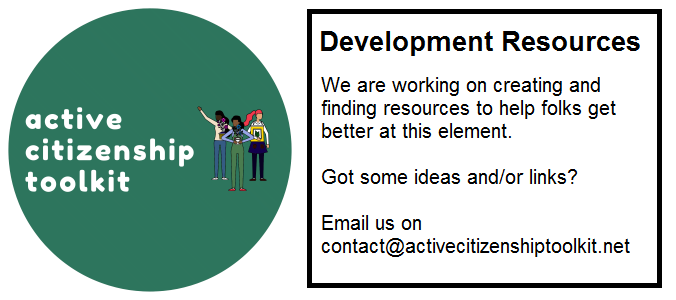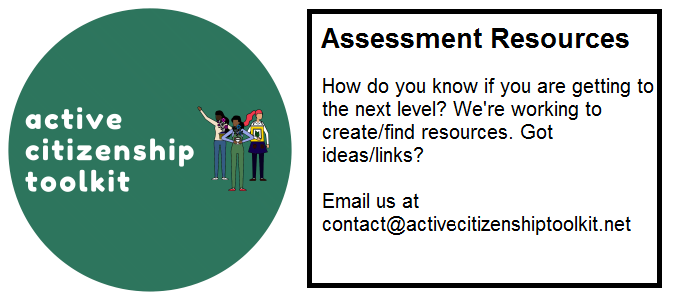Element Descriptor
You can’t “win” in political games. Sorry, finished that sentence prematurely. You can’t “win in political games unless you understand what is motivating the behaviour of the bureaucrats (aka “civil servants” who are busy trying to ram through all sorts of stupid, albeit dressed up as “green” or “sustainable” or whatever other meaningless drivel is being pushed at the moment.
Level descriptors
| Novice | Practitioner | Expert | Ninja |
|---|---|---|---|
| You have – and can communicate – a basic understanding of how party cultures and work demands constrain behaviour and reward conformity/obedience/secrecy.You understand and can explain the processes by which candidates are vetted and selected, manifestos written etc.You understand the difference between executive members and backbenchers and the processes by which decision-making and scrutiny is alleged to take place, and how it actually does. You understand the different kinds of motivations people have for becoming and remaining local politicians | You have a more detailed and local understanding of the history of the local parties you are dealing with – the past and present big fish, where they came from, and what has happened to unlucky/dissident elected members in the past. You can explain ‘evaporative cooling’ and you can explain the different techniques politicians use to gild the turd, and hide from scrutiny | You know the ins and outs of the various factions in the local authority dominant party/ies, how they fight like cats in a sack, who plays dirty, who leaks what to who and when, which bureaucrats are cats’ paws and which aren’t under the thumb, which ones are on the outer. You know who the likely next bosses and their foibles.Meanwhile, you can confidently and accurately predict the kinds of spin specific Jim Hackers and Alan B’Stards will use to blameshift in any given scandal. | You can compare and contrast the party cultures within your local authority with those of neighbouring/comparable authorities, and trace the lineages/tensions with national cultures. You have written extensively on the reality-distortion fields of political parties in general, and the consequences for effective climate policy (hint, no such thing exists). |
Element Overview Essay
This is a draft. If something doesn’t make sense, or you see typos, or if you have further ideas, please email us on contact@activecitizenshiptoolkit.net
The causes of this being done badly- there are lotts.. And it’s a lot to do with people having very little personal experience of how politicians do things and very little awareness beyond the mass media of what’s going on. And there are lots of convenient caricatures about elected politicians. And some of these come from a very right wing slash libertarian place such as public choice theory, which obviously also deals with bureaucrats. And what these right wingers are trying to do.
And they’ve succeeded remarkably well, is to delegitimise the idea of a democratic state that can take decisions which impinge on the freedom of manoeuvre of rich, powerful individuals and corporations. And this has been an ongoing battle. We could cite the syllogism of Alex carry about the 20th century being A battle between democracy in corporations and corporate propaganda.
The consequences of not understanding the pressures on politicians is that you have too little sympathy for them or too much. And you don’t understand what other forces are acting upon them besides you, lobbying them. And so you will be disappointed when you fail when you really always begin to fail, or surprised with your success and describe it to yourself when it was actually quite possibly a confluence of other factors in both those leaves you less able to be involved in future useful active citizenship.
So the fix as well obviously, beginning to understand those pressures. Now most people will think, “Oh, it’s the pressure of the electorate.” So the only thing to consider is are they in a safe seat or not? Well, you also have to consider what their local party is like in is it going to reselect them or deselect them. Whether the party is in government or opposition, the workload on the individual, the family commitments have the individual. Do they have kids? Do they have sex sick parents? Do they have a full time job alongside this at an MP level that’s less common? What are their ideological alliances that might suffer if they make a different decision? Are they ambitious, in which case They’re probably going to be hewing very close to the party line in most circumstances, though, of course, sometimes. The way that ambitious people think that they’re going to get ahead is by displaying radicalism on an issue or maybe even two issues if they’re particularly brave. There’s also the question of how the where’s the money coming from follow the money. So, our party finances in good shape? Are they reliant on donations from Russian oligarchs? What would happen if their labour if they pissed off one of the big unions that is paying for their attendance at party conference? So that can explain how people vote on decisions like Heathrow, for example. Heathrow expansion. In the same way that I’ve been urging people to always look at individual social movements within an ecosystem, individual politicians need to be seen as parts of processes, flows of power, influence money, votes, etc.
You also not only have to look at those factors but within the politician’s career, are they wanting to make a few more very big changes? Are they in legacy mode? are they about to step down and therefore might speak more freely because what can the whips do to them? Are they independently wealthy? Do they have their pension sorted?
Mostly I’ve been talking about the national level and the county level is different again and if you are working on council issues you really need to have a typology of how the different kinds of councillors behave.
Development Resources

Assessment Resources

